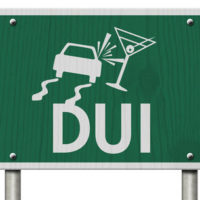Enhanced Police Tactics and DUI Stops in Florida

Typically, when officers pull over motorists, they personally observe criminal activity. This activity could have nothing to do with DUI. The “criminal behavior” could be a non-working tail light or an expired registration sticker. Nonetheless, as far as Florida law is concerned, these reasons are valid.
But in many situations, such evidence is either shaky or missing. Sometimes, this lack of evidence invalidates the stop. If that’s true, the fruit of the poisonous tree doctrine applies. Anything that happens after the bad stop, including any statements the defendant made and any evidence that officers collect, is inadmissible.
So, a Port St. Lucie criminal defense attorney must be very diligent when it comes to the stop. That’s especially true in the following situations.
Saturation Enforcement Patrols
These initiatives are also known as Selective Traffic Enforcement Programs, or STEP campaigns. They are essentially police dragnets. And, when police officers throw large nets into the sea, they often pull out some fish that they should not catch.
STEP campaigns vary among different law enforcement offices. Typically, patrol supervisors send officers to a certain area and tell them to write as many citations as possible for a certain offense. Speed enforcement and seat belt enforcement (“click it or ticket”) STEP campaigns are quite common. DUI efforts are rather common as well.
In all these situations, officers often take shortcuts at the initial contact phase. For example, during speeding STEP campaigns, officers might pull over motorists who are only travelling one or two miles per hour above the speed limit and give them tickets. Or, in DUI situations, officers might pull over motorists who are weaving in a single lane of traffic, which is not illegal in Florida.
The state of Florida usually pays for officer overtime and all other costs associated with the STEP campaign. So, these officers feel pressured to issue as many citations as possible, to justify the added expense.
As a result of all this, St. Lucie County jurors may question both the amount of evidence officers had and their motives for pulling over the defendant.
DUI Roadblocks
Roadside checkpoints allow officers to pull over motorists even in the absence of any criminal activity. In exchange for this added power, DUI roadblocks must adhere to a number of qualifications, including:
- Supervisor Setup: Every aspect of the checkpoint must come from on high. That includes setting up the roadblock as well as all the associated procedures. Officers on the scene usually have no discretion whatsoever in this area.
- Prior Publicity: The sponsoring law enforcement agency must advertise the checkpoint in advance so that motorists can avoid the area if they choose to do so. The type of publicity must be reasonably calculated to provide such notice.
- Checkpoint Setup: The roadblock must clearly state that it is a DUI checkpoint. These signs should also instruct motorists about what they should do. Additionally, traffic cones and other devices should be far away from the checkpoint, so motorists can turn around if they so desire.
- Neutral Formula: Officers cannot randomly detain motorists who do not “look right.” Instead, they must pull over vehicles according to a neutral formula, such as every third vehicle. If traffic backs up, they may change the formula to keep traffic moving.
- Limited Duration: Generally, any delay longer than about fifteen seconds is too long. That includes both the time at the checkpoint and the time waiting in line. Additionally, the checkpoint itself cannot last more than a few hours, at most.
You have rights at a DUI checkpoint. Drivers must stop when ordered to stop and produce documents for inspection. However, they are not required to answer questions and not even required to roll down their windows.
Connect with an Experienced Lawyer
The stop is a critical point of a DUI arrest. For a free consultation with an experienced Port St. Lucie DUI attorney, contact Eighmie Law Firm, P.A. We routinely handle matters throughout the Treasure Coast area.
Resource:
law.cornell.edu/wex/fruit_of_the_poisonous_tree
https://www.eighmielawfirm.com/the-three-types-of-dui-prosecutions-in-st-lucie-county/


